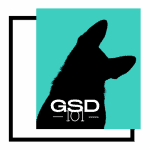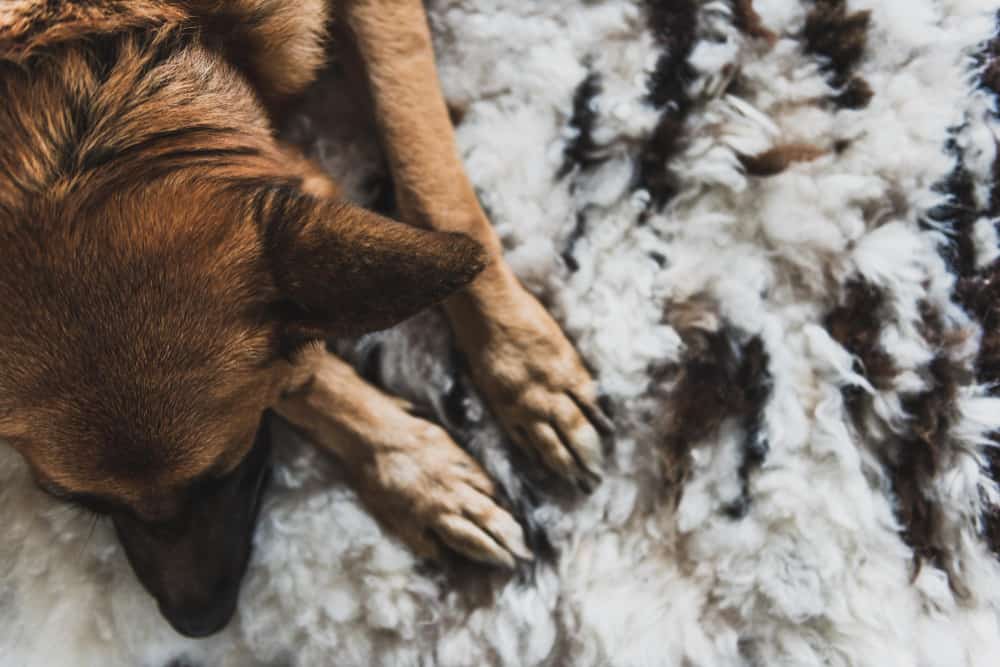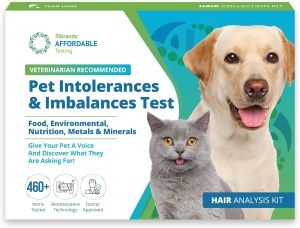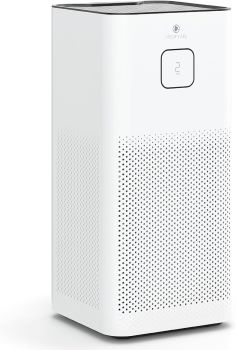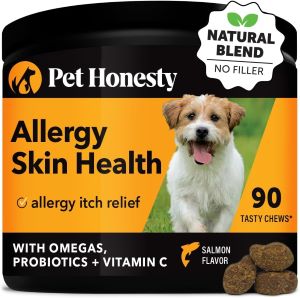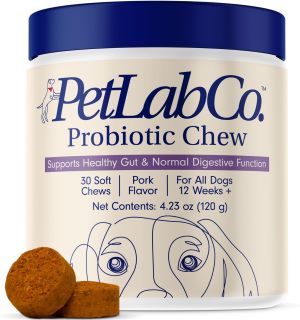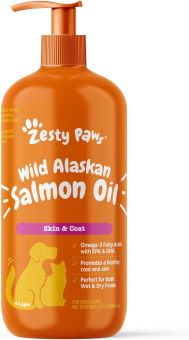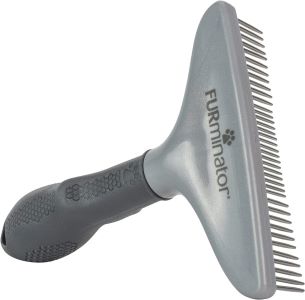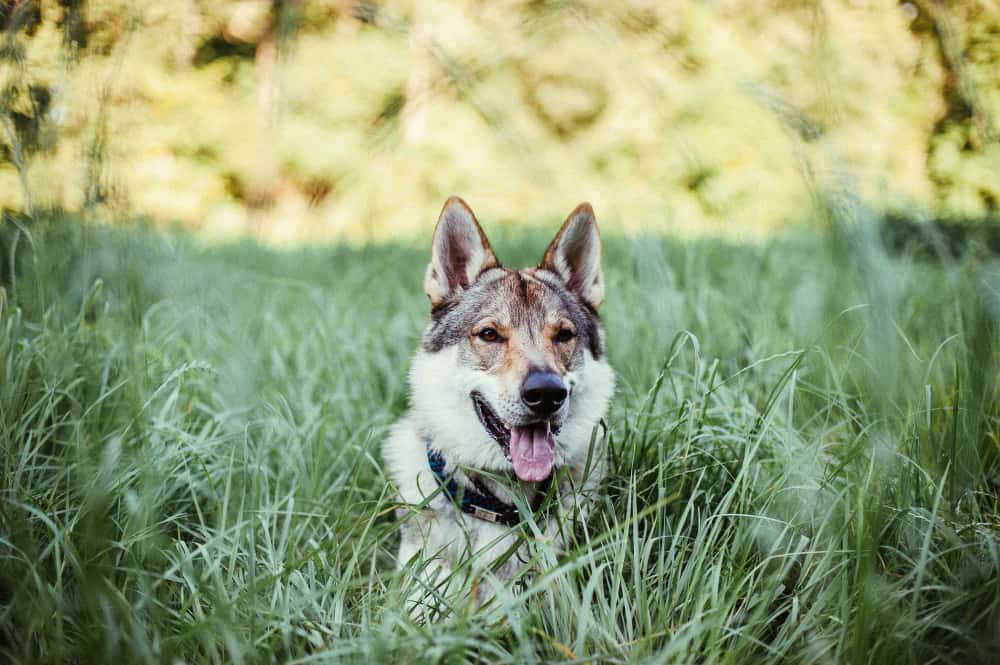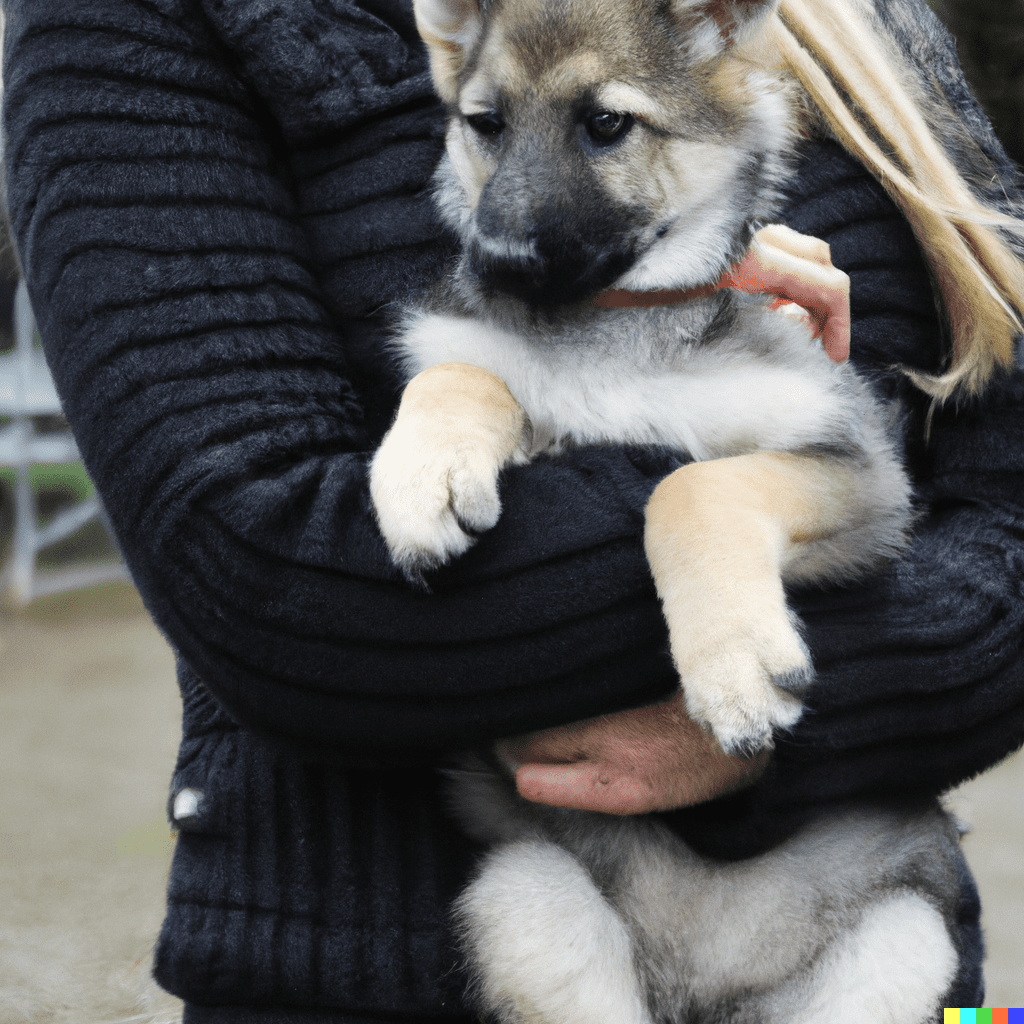Disclosure: This post contains affiliate links. We may earn a small commission if you decided to make a purchase, at no additional cost to you.
If you think are at your wit’s end to stop your German Shepherd from constant scratching or licking, you are not alone. In fact, itching or allergic skin is one of the most common issues that German Shepherds have. This can be really frustrating for many owners. But if you can identify the root cause, you will have a good chance to know exactly how to stop the itching for the rest of your life.
German Shepherds are highly susceptible to skin allergies. The main reason for this itching is usually food sensitivity, but environmental allergens like fleas, lice and fungus can also cause your GSD to scratch uncontrollably.
To make it most helpful for you, we literally went on to social media and read through hundreds of comments from GSD owners who have successfully treated their GSD’s itchy skin. You will see all the recommendations that actually work for their GSDs. Let’s get started!
Are German Shepherds prone to itchy skin?
German Shepherd is a dog breed that is prone to skin allergies like canine atopic dermatitis (CAD) which causes by mainly food and parasitic hypersensitivity.
Canine Atopic Dermatitis causes a dog to have allergic reactions to particles like dust mites and pollens in their environment. Their skin will become red, swollen, and begin to itch uncontrollably in response to exposure to these particles.
How bad can itching look like in a German Shepherd?
“My gsd would scratch and bite till she had patches of fur missing and actually make a wound from biting.”
An owner of a 1-year-old GSD
Skin problems can become a life-long battle for some German Shepherds and their owners. Many owners report their GSDs are itchy for years despite taking them to the vet regularly.
Read on if you think you have tried everything and nothing works.
5 Reasons your German Shepherd is itching
When your German Shepherd starts to itch, it’s a clear indication that it may be feeling uncomfortable or in pain. Let’s look at the most common reasons why your German shepherd might be itching:
1. Food allergies
Food allergy is the most common cause of skin problems in German Shepherds. Usually, the dog is allergic to certain kinds of proteins (e.g. chicken, turkey, or pork) in the food, but dogs can also be allergic to any ingredient, including milk, grain, and even additives.
So, it is important to determine whether or not your GSD has food allergies to any type of food. This will give you a good indication for a proper diet. The best way to do so is to get your dog tested for food allergies. This can be done by your vet.
At-home dog food allergy kits can also come in handy.
These tests use a hair sample to determine whether or not your dog has a food sensitivity to over 275+ different food ingredients.
2. Fleas
Fleas are a common culprit for itching dogs. They cause your German Shepherd a lot of discomforts.
Previously flea-free dogs can pick up these external parasites from other dogs or outdoors.
Some dogs have strong reactions to fleas. These flea allergies can cause your dog to scratch until they break the skin.
When a dog scratches so much that he breaks the skin, it can cause a secondary infection. If your dog is bleeding or has caused open wounds, he will need to be looked at. Dirt and bacteria can get inside these wounds. A vet might even need to prescribe antibiotics.
3. Lice
Dogs can also get lice. Lice are small, external parasites that look a lot like dandruff to the naked eye, but up close, they are white, grubby, wingless insects.
They live in the fur and feathers of animals and feed off of their host’s blood, dead skin, and skin oils.
According to the AKC, “Lice, especially the eggs or nits, are sometimes mistaken for dandruff, and one way to distinguish lice from dandruff is by shaking hair removed from the dog. If the small flakes fall off, it’s dandruff.
If they cling stubbornly to the hair, it’s probably lice.” If your dog has been scratching a lot lately, you might want to check his fur for these parasites to see if they are the cause.
4. Environmental allergies
Similar to humans, dogs can have allergic reactions to elements in their environments. German Shepherds usually don’t develop these allergies until they are about a year old.
The most common environmental allergies are airborne pollen and dust mites, both of which can be seasonal allergies. Dust mites are at their worst in the Autumn months.
Dust mites are not parasites, but their leavings are what irritate your dog’s skin.
German Shepherds also can be allergic to certain items in your house such as carpet fibers, air fresheners, and shampoos. The condition they develop is called contact dermatitis, which is essentially a skin allergy.
5. Fungus
Ringworm is a common fungal problem in dogs. Ringworm is characterized by a circle of scaly, red skin; fur loss; and dandruff.
This fungus can be passed from pet to human as well as from pet to pet. So, caution is advised if you suspect your dog may have ringworm.
German Shepherds are not particularly predisposed to ringworm, however, dogs who have open wounds may be more prone to get the fungus.
How do vets treat skin allergies in German Shepherds?
Your veterinarian might recommend immunomodulatory medications. These are available either as a daily pill (Apoquel) or a Cytopoint injection given every 4-10 weeks. (Source: PetMed)
Apoquel can significantly reduce itching, and also decreases the associated inflammation, redness or swelling of the skin.
Along with these, antibiotics or antifungal medicines are often required to treat the skin infections that result from allergies.
Home remedies for German Shepherd itchy skin
The first thing you will want to do is to determine the cause of the allergy. This will take some time. You can begin by eliminating any new substances that your GSD came into contact with before he started having symptoms.
#1 Create an allergen-free environment
Use an air purifier
When he is indoors, you will also want to keep the windows closed and install an air purifier to reduce the amount of pollen inside the home.
Use a Humidifier
Winter months are notoriously bad for dry skin in both humans and dogs. Fireplaces and heaters sap moisture from the air and from the skin.
Adding a humidifier might help to relieve some of your German Shepherd’s itchy skin by adding moisture back into the air.
Vacuum daily
In addition to these measures, if your dog has a dust mite allergy, you will want to vacuum regularly and clean fabric surfaces often.

Remove the carpet
Your carpeting is something that may trigger allergies in dogs. A dog carpet allergy can be caused by the material itself or by a substance either on or in the carpet
In extreme circumstances, you may even need to replace the carpet with tile or hardwood flooring.
#2 Switch to hypoallergenic food
If you have found that your dog has a sensitivity to his food, there are many great options you can choose from:
These will have limited ingredients and be free of the proteins, such as beef and chicken that tend to cause your German Shepherd the most irritation.
Common hypoallergenic dog food recommended by GSD owners include:
- Natural Balance Limited Ingredient Diet
- Diamond Naturals Skin & Coat Real Fish Recipe Dry Dog Food with Protein, and Probiotics
- Zignature Limited Ingredient Formula Grain-Free Dry Dog Food
- Nulo Frontrunner All Breed Adult Dry Dog Food
- Blue Buffalo Life Protection Formula Natural Adult Dry Dog Food

Best Dog Food on Amazon
Check out this list of the latest best dog food. From kibbles to wet dog food, from sensitive skin to upset stomach, here’s everything you need to keep your dog healthy.
Probiotic treats recommended by GSD owners include:
Probiotics are friendly bacteria. Dogs and animals have billions of them in their stomach to help fight infections, make the immune system stronger, help digest food, and make vitamins and nutrients.
This is called the microbiome and a healthy dog needs a healthy microbiome.
Adding salmon oil to your dog food
Salmon oil is one of the best home remedies for dog skin allergies and itching. The fatty acids in the oil balance moisture in the skin. They help cells build strong barriers and may help fight off seasonal allergens like pollen, dust, and fleas. (Source: PetHonesty)
“I started giving her fish oil capsules cuz she wouldn’t eat the liquid on her food so I give her 4,000 mg I think it is per day of fish oil in capsules I just push it down her throat and that has worked great it took about a month for it to start working but I noticed changes within 2 weeks” (Dan. K, GSD owner)
Home-made dog food
You can also prepare easily digestible meals for your dog. This would include a mixture of spinach, lamb, carrots, rice, bone meal, and much more.
You can find a lot of great homemade dog food recipes to feed your German Shepherd.
#3 Get rid of the fleas
You can get a topical solution that you apply at the neckline. These are sold in doses that last about a month long. You can also get pills and collars that prevent fleas with varying time frames of protection.
Vets are also eager to prescribe flea medications because fleas not only cause your German Shepherd a lot of discomforts, but they also carry diseases such as heartworm.
#4 Get rid of dog lice
Modern flea medications also help to prevent lice. Yet, if you’ve found your dog has these pests, you need to start by washing all of his bedding, toys, pillows, etc.
You will also need to cut out the matted fur and comb the rest of his fur with a flea comb. This will help to remove the eggs and bugs. Give your dog a good bath.
You can use some over-the-counter insecticide shampoos, but you need to check with your vet to see what they recommend.
#5 Give your dog a special bath
Oatmeal is an age-old remedy for dry and itchy skin for humans. And it happens to be safe for your dog as well. In fact, most doggy hypoallergenic shampoos include oatmeal as an active ingredient to soothe and fight irritation. You can also choose a shampoo with either aloe vera or tree tea oil as the ingredients.
Some owners simply put a few drops of tea tree oil in their regular dog shampoo.
#6 Apply moisturizing skin spray
For some immediate relief, you can buy some moisturizing sprays (which contain vitamin E) for your dog’s irritated skin. These are fine to put on skin that is broken and irritated.
Many of them have ingredients that help to speed the healing of these affected areas. These sprays are better for adult dogs rather than puppies.
Other home remedies for itching may include
- Coconut oil: Try massaging coconut oil on your German Shepherd’s skin to help relieve itchiness and also can improve your dog’s skin and coat.
- Apple cider vinegar: Use this as a rinse to alleviate symptoms of itching. Dilute it in a 1:1 ratio with purified water and put it into a bottle. Wash your dog as normal with a mild castile soap and then rub the apple cider vinegar into their fur.
#7 Groom your dog regularly
As mentioned previously, GSDs have a double coat and can be prone to more shedding. Due to this, they need to be groomed regularly to prevent the accumulation of dandruff and dead hair. It also helps release the natural moisturizing oils in your dog’s skin.
A rake brush is an ideal brush for a German Shepherd. It helps reach the undercoat, which can be difficult to get with a regular dog brush.
When to get your Vet’s help?
If you have tried an elimination diet, have removed external parasites, and have removed as many allergens from the environment as possible, and your dog is still scratching all of the time, has swollen, irritated skin, and exhibits fur loss, you need to take your dog to the vet.
Your dog may need additional medication from the vet. This may include corticosteroids and antihistamines. These will help manage the symptoms. There are also some topical shampoos and ointments that a vet may prescribe to soothe the itching and reduce inflammation.
Conclusion
German Shepherds have sensitive skin and can become itchy due to food or environmental allergies. It is very important to look for the root cause of the allergy and identify suitable remedies. Hopefully, we have given you some useful information to let you make the right decisions.
More on German Shepherd Allergies
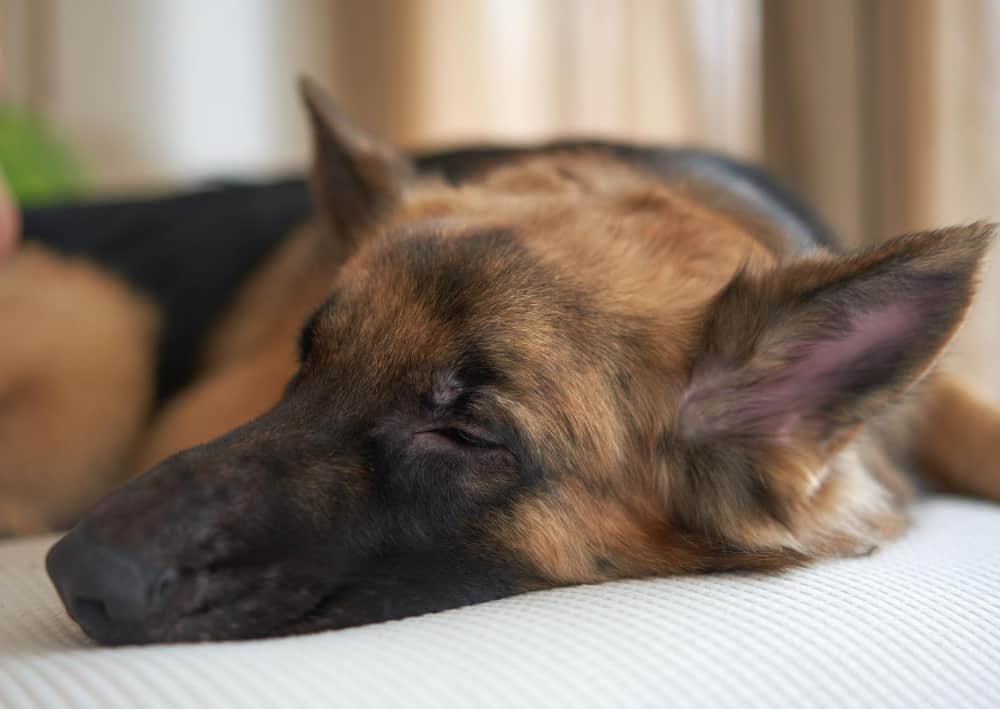
- Most Common German Shepherd Allergies: What You Need to Know
- How to Help Your German Shepherd With Allergies?
- Ear Allergy in German Shepherds: Everything You Need to Know
- Chicken Allergy in German Shepherds: Everything You Need to Know
- German Shepherd Skin Allergies: Best Tips for Relief
- How to Stop Itching in German Shepherds? Effective Remedies Owners Use
- You may also like:
- Is Pet Insurance Worth It for Your German Shepherd Dog?
- Is Grain-Free Good for German Shepherds?
- Worst Dog Food for German Shepherds: Things to Avoid
- Best Dog Food for German Shepherds with Sensitive Stomach
- German Shepherd with Diarrhea: A Feeding Guide
- Dog Diarrhea: Simple and Effective Home Remedies That Dog Owners Use
- Constipated Dog: Causes and Easy Home Remedies
Eric is a dog lover and a blogger. He loves spending time with dogs more than with humans. You will find him training himself for the next marathon when he is not writing. And he loves Thai food~
